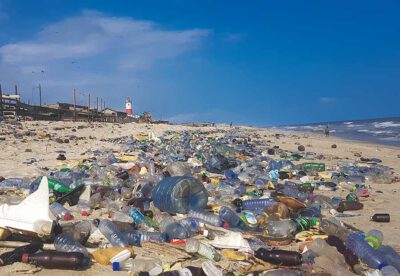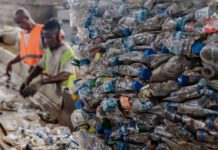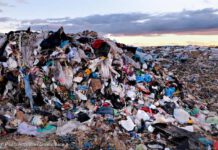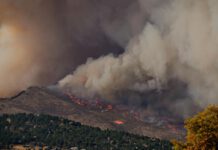
(CC BY-SA 4.0)
The first meeting of the Intergovernmental Negotiating Committee for a new legally binding treaty to end plastic pollution concluded today in Punta del Este, Uruguay. WWF welcomes the strong support shown for an ambitious global plastics treaty demonstrated at the meeting, but cautions that this is just the first step in the two-year road to a global plastics treaty.
More than 145 countries have shown strong alignment in their preference for a treaty with specific and common, global rules. Such rules could include bans on the most problematic forms of plastic, and product requirements to ensure reuse and circularity.
This is the first time that governments have met to negotiate global level regulations to stop the plastic pollution crisis. The process is planned to conclude in 2024 and aims to create a global convention with a common global approach to tackle plastic pollution.
Welcoming the progress made at the meeting, Eirik Lindebjerg, WWF Global Plastics Policy Lead, said “The momentum demonstrated at these negotiations is a promising sign that we will get a truly ambitious treaty with effective global measures to stop plastic pollution by the end of these negotiations.” However, he also warns that “This is just the first step towards a legally binding global treaty that can help us stop plastic pollution. The next stage of negotiations will be more challenging, as countries must agree on the technical measures and rules. Although in the minority, there are also some powerful opponents of global rules and standards, which risk potentially weakening obligations on countries to take action. The push for an ambitious global plastics treaty has only just begun.”
While the formal outcomes of the meeting appear quite limited, they do not reflect the strong support for global rules and commitments from governments. It is now crucial that governments start developing the specific rules towards the next negotiation meeting in Paris in May 2023, according to WWF.
WWF has called for the negotiations to result in an ambitious and inclusive treaty, with efficient control measures applicable at various levels, and which considers financial, technical and technological mechanisms to carry out a just transition at a global level.
Lindebjerg argues that: “The volume of plastic polluting the environment has reached crisis levels. Millions of people around the world, whose livelihoods and environments are affected by plastic, have their eyes on these negotiations. It has been a very important week in the history of protecting the environment and people. This week we saw an encouraging level of agreement, both in formal and informal spaces, on the urgency of seeking a joint solution to this major threat to nature and communities, and to do so in a comprehensive, effective, inclusive and science-based manner. Now negotiators must harness this momentum to push for specific rules to be negotiated as part of the treaty”
World Wildlife Fund. WWF
www.worldwildlife.org












